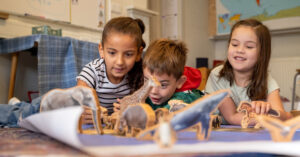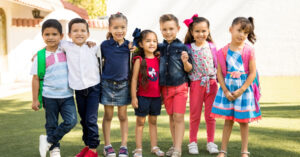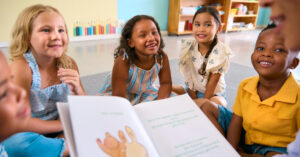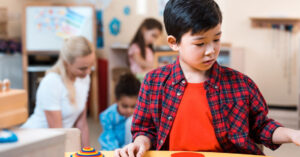Beyond Academics: Nurturing Life Skills in Early Learners
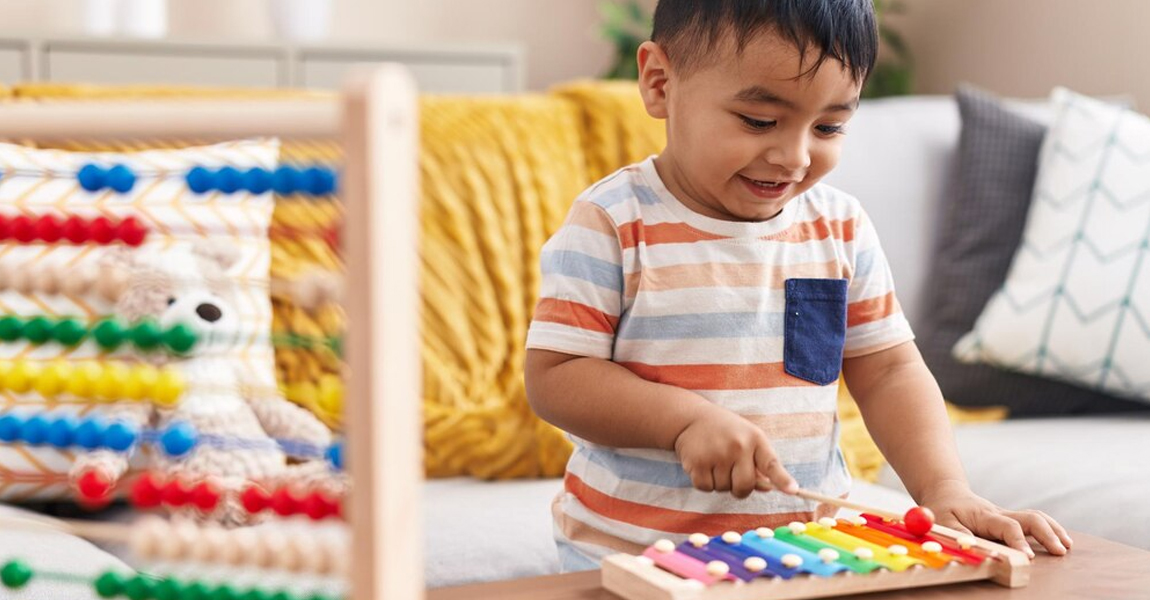
In today’s rapidly evolving world, the focus on education is shifting. While academic excellence remains crucial, there’s a growing recognition of the need to nurture life skills in early learners. This holistic approach prepares children for academic success and equips them with essential skills that will serve them throughout their lives.
The Importance of Life Skills
Life skills encompass various competencies, including critical thinking, emotional intelligence, problem-solving, teamwork, and effective communication. Research shows that children who develop these skills early are better prepared to navigate complex social situations and succeed academically. Unlike traditional rote learning, which often emphasizes memorization, a life skills-focused curriculum encourages children to engage actively with their learning environments, fostering a deeper understanding and retention of knowledge.
Integrating Life Skills into Early Education
- Play-Based Learning: Play-based education is vital for making learning enjoyable and fostering creativity and social skills. Activities like role-playing, group games, and storytelling encourage collaboration, communication, and negotiation key skills for future success. Studies indicate that play-based learning significantly enhances children’s cognitive and social development, laying a solid foundation for lifelong learning.
- Emotional Intelligence: Teaching children to recognize and manage their emotions is essential. Social-emotional learning (SEL) programs help children develop empathy, resilience, and self-regulation. According to a meta-analysis from the Collaborative for Academic, Social, and Emotional Learning (CASEL), SEL programs not only improve students’ academic performance but also reduce behavioral problems.
- Real-World Experiences: Opportunities for hands-on learning, such as community service projects or field trips, help children apply their knowledge in real-world contexts. These experiences foster a sense of responsibility and community engagement, enhancing their understanding of social dynamics and teamwork. For instance, a school organizing a local clean-up event teaches environmental stewardship while promoting cooperation and leadership skills.
- Problem-Solving Activities: Encouraging children to tackle challenges and think critically enhances their problem-solving abilities. Activities like science experiments, puzzles, and project-based learning promote analytical thinking and creativity. Research published in Child Development shows that children exposed to problem-solving tasks exhibit higher levels of perseverance and critical thinking.
5. Mindfulness Practices: Introducing mindfulness and relaxation techniques in early education can significantly enhance emotional regulation and focus. According to findings from the Mindfulness in Schools Project, children who practice mindfulness exhibit improved attention spans and better emotional management, contributing to their overall well-being.
The Role of Educators and Parents
Educators and parents play a crucial role in nurturing life skills. By fostering an environment that values collaboration, creativity, and emotional growth, they can help children develop the confidence and skills needed to thrive. Training teachers to recognize the importance of life skills in the curriculum is essential, ensuring that educational practices align with these goals. Moreover, parents can reinforce these skills at home by encouraging open communication, cooperative play, and problem-solving discussions.
Case Studies and Success Stories
– The Reggio Emilia Approach: This educational philosophy emphasizes child-led learning and real-world experiences, nurturing creativity and critical thinking. Schools following this approach have reported significant improvements in children’s social skills and emotional well-being.
– Montessori Schools: Known for their hands-on learning and mixed-age classrooms, Montessori schools encourage independence and collaborative learning. Research shows that Montessori students tend to score higher on measures of social and emotional development compared to their peers in traditional settings.
Conclusion
As we look to the future of education, nurturing life skills in early learners is not just beneficial but essential. By integrating these skills into early childhood education, we can prepare our children to face the complexities of the modern world with confidence and competence. The focus should not only be on academic achievement but also on equipping our children with the tools they need for lifelong success.
Let's Talk
Share this Articles

